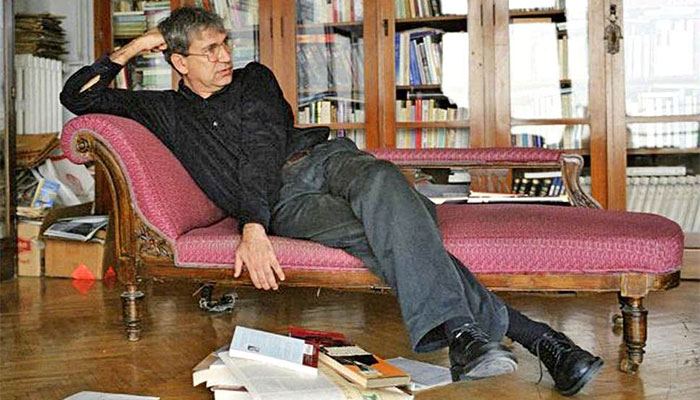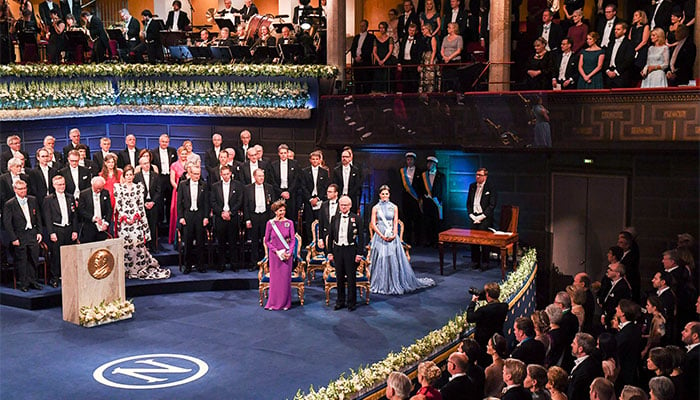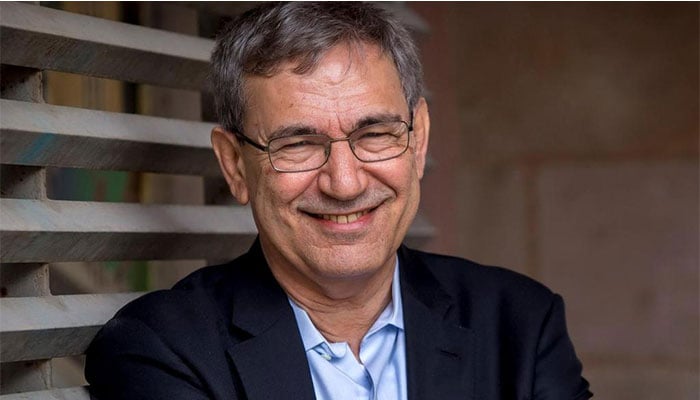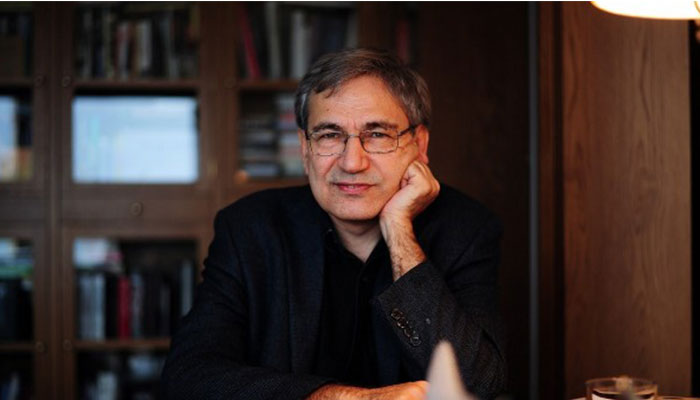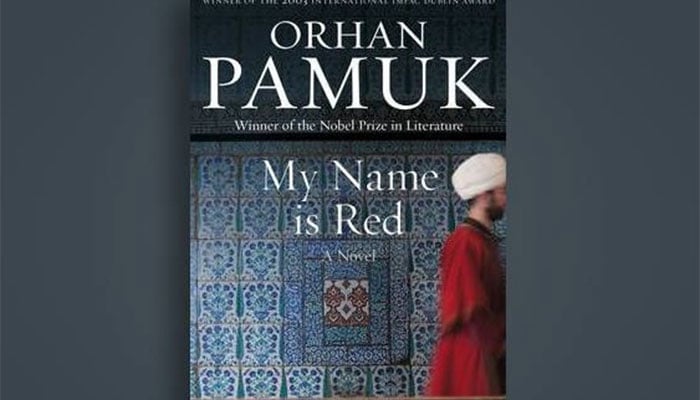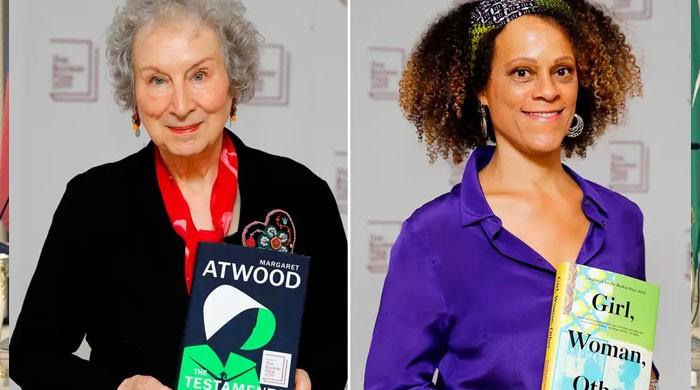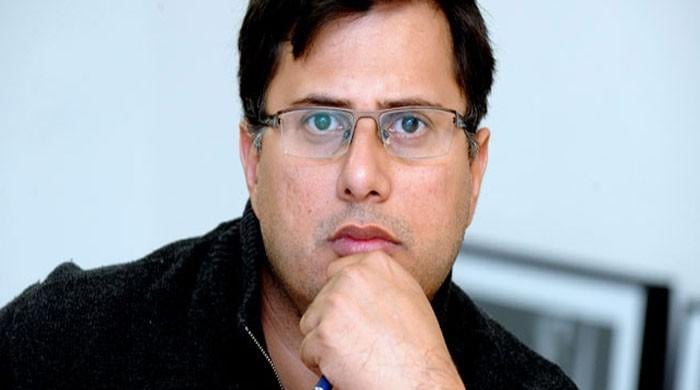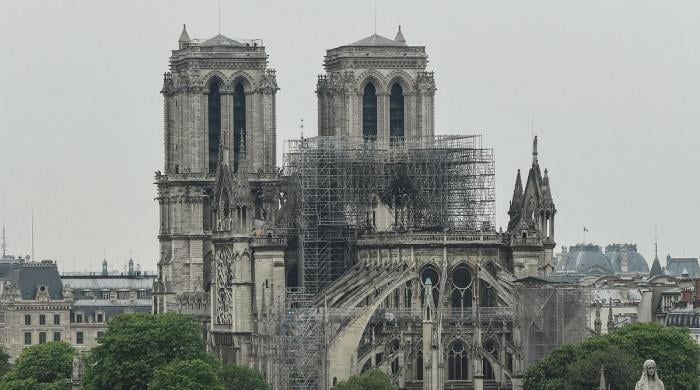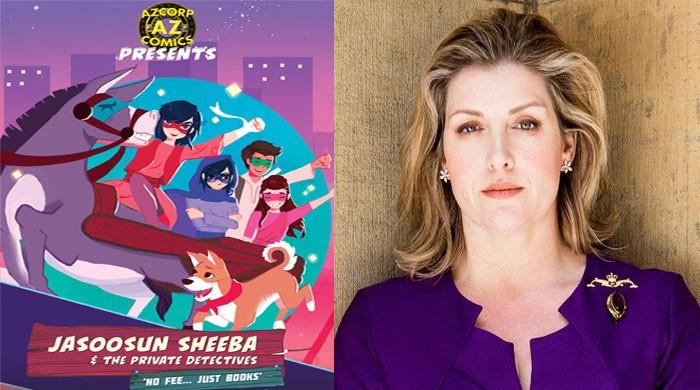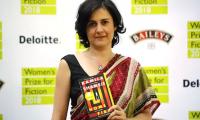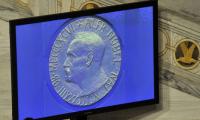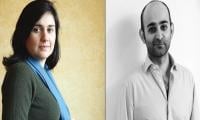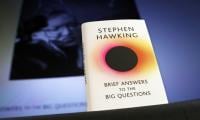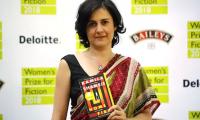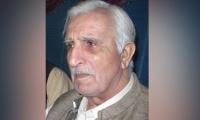A man of letters often dragged into politics
Nobel winner Orhan Pamuk speaks about art, politics, and the importance of speaking truth to power
SHARJAH: On 27 November 1885, Alfred Nobel, a Swedish chemist and the inventor of the highly explosive substance known as dynamite, dedicated the largest share of his fortune to a series of prizes, to be awarded each year after his death, in the fields of physics, chemistry, medicine, literature, and peace.
Since 1901, the Nobel Foundation - a private institution that manages the finances and administration of the Nobel Prizes - has awarded 597 Nobel Prizes to 950 individuals and 27 organizations around the world. The historical continuity of the tradition has made the prize globally prestigious.
However, in recent years, the Nobel Foundation has been hit by a series of scandals that threaten to strip away a century of honor and prestige built around the prizes. Two of the oft-repeated allegations against the foundation center around suspect political motivations and alleged sexual harassment.
The Nobel Prize in Literature, unfortunately, seems to have become a litmus test revealing the inner workings of the Nobel Foundation. Since the institution has no rigid criteria for awarding the prize, the final choice made each year opens the foundation up to valid criticism.
This year, the Nobel Prize in Literature was awarded to Peter Handke, an Austrian novelist, poet and translator. The decision of the Nobel Foundation triggered global outrage, since Handke is accused of white-washing Serbian war crimes against Bosnian Muslims for political purposes.
The outcry brought back memories of more than a decade ago, when speaking up against war crimes had landed another Nobel-winning author into similar trouble. Both instances highlighted the conundrum that many face: Should art be separate from the artist? Perhaps speaking to an author in the eye of the storm can serve as a helpful guide in this regard.
In 2006, Orhan Pamuk, famous Turkish intellectual and author, was awarded the Nobel Prize in Literature for his quest to document the melancholic soul of the city of Istanbul, and in the process, the discovery of new symbols in the clash and interlacing of cultures, according to the Noble Foundation.
The choice ruffled many feathers, not only in Turkey, but around the world. Pamuk had been accused of insulting Turkish identity by turning down a state honour in 1998. In a 2005 interview, Pamuk denounced acts of genocide committed by Ottomans against Armenians and by Turks against the Kurds.
Turkish nationalists filed criminal charges against him for insulting his nation in 2005, but they were dropped on a technicality in 2006, before he received the Nobel. Literary critics had placed him third in the race for the prize in 2006, behind Syrian poet Ali Ahmed Said and American author Joyce Carol.
There were some who argued that the Nobel Foundation had chosen to honour Orhan Pamuk as a symbol of the relationship between the West and Turkey. The critics claimed that since Pamuk was critical of authoritarianism in Turkey, the West had awarded him the prize simply to amplify his voice.
However, Pamuk dismissed the criticism, and accepted the Nobel Prize, telling the media that he thought that the prize was a recognition of his work rather than a statement about his beliefs. He said he was essentially a literary man who had fallen into a political situation.
Since the controversy, Pamuk has gone on to become one of the most successful authors ever. His books, which include best-sellers such as My Name Is Red, The Black Book, A Strangeness In My Mind, and The Museum of Innocence have sold millions of copies worldwide.
The books authored by Pamuk have also been translated into sixty-three languages. Even though Pamuk essentially writes for the Turks, it is quite extraordinary, and a testament to his writing prowess, that he enjoys a large following in the Middle East, Europe, China, India, and even South America.
The News met the Nobel winning author at the Sharjah International Book Fair 2019, where Pamuk spoke frankly and at length about his politics, writing, the creative process, and the importance of speaking truth to power. Parts of a conversation with the author are reproduced below.
A short review of his book, My Name Is Red, follows the conversation. The book explores the life of Ottoman miniature artists during the European renaissance age, and is actually a murder mystery set in the streets of Istanbul. It is perhaps the best-known work of Pamuk outside of his native Turkey.
In conversation with Orhan Pamuk
What is the purpose of art?
So, the purpose of art is perhaps the same every place. First essentially, I believe that there is an innate feeling that we want to do some art. Just like a child drawing something, seeing something, without even having a purpose or a function.
We do art in a way like sports, it comes from inside, the purpose. Of course, we are human beings, we think, and with this energy, we often invent a purpose. Maybe it is political purpose, or the purpose of beauty. The joy of seeing the world is in itself a purpose.
There are so many purposes to make art, that is why people not only make art for a purpose, but as an activity, as a performance. I wrote a book which is about 16th, 15th, and 14th century Istanbul painters, and I was a painter myself, from the ages of 7 to 22.
There was a feeling that was very important to me, when I am painting, my brush is doing something, but my intellect and my mind is not thinking about that, but it is working by itself. People who work in other crafts knows this feeling, so I wanted to write about this feeling.
Is there an inevitability about individuality in our culture?
I argue, in many cases, perhaps because I am a Turk, that is between the East and West, when you say individuality is inevitable, I agree with you. We all have individuality. What matters is the cultural and social place that we are living in.
Some cultures honor individuality, in fact there are traces of every individual that make he or she different, that end, in fact, in arts, and literature and culture. This thing is different, individuality is more important than the communal voice.
I argue that every human being has her or his strong individuality, but some cultures honor it. Wow you are different; you can write a novel. Some cultures are like, oh you are different, be more like others, shut up and sit down.
Has society moved toward novel writing from poetry?
Okay there is so much to say about this. There is a saying, and I think Turkish culture is no different from Arabic culture in this, there is a saying in Turkey that every educated Turkish male at the age of 20 is already a poet. In fact, it is true about me.
When I was at the age of 20, I was already writing poetry. But yes, the persona, the prestige, the role of the poet in Ottoman times was so important. Do not forget that writing poetry in Ottoman times is a sort of an education. You will produce your diwan, and say well, this is my diwan, sir, look I am educated.
It is a sign that this person is committed to this classical culture, and has achieved something. And it is prestigious and it has a certain state, as people were also ending up in the government. Poets were statesmen, you know, would-be-statesmen.
It is like writing a poetry book is like saying I am a public intellectual, this kind of thing. And there were no novels, Turks were not writing novels, The art of the novel was invented in 1850 by French authors, but now, in the last 170 years, along with the whole world, the prestige and practice of poetry is changing.
A publisher in Shanghai is telling me that everyone is sending, all the world, is writing novels. Same in Turkey, really. When I started writing novels some 40 years ago, okay I was young, but I was writing novels, then the number of original novels floating around was 100 or 80.
And now, just like in Europe, everyone is writing novels. What happened? Why did all these people move from poetry to writing novels? It is such a long story. But more or less, since communication through literature happens through novels.
Also another thing is that women read novels, 65 percent or something. Also, there are more female writers now. A friend of mine, who was writing a major literary magazine in Turkey, one day held a competition, to give a prize (for poems and stories).
In the poetry competition, men, all the young men. Story competition, women, all the women. So this is also anthropologically interesting. Novels are about describing the world, poetry is more magical.
But humanity is really more novels, and if you want to communicate through literature, you write novels.
There has also been a big debate about the death of the novel.
In the last five or six years, because of digital books and internet, I know from so many publishers, the way the novels are read is going down the hill. Everyone is asking why is this happening. I will say this It is happening because of the internet, people are not reading that much.
There are so many things, there is not someone to blame too much, it is happening, technology combined with history is making this, why? Poetry is not going up, but this does not mean that the art of the novel is dying, this is also a journalistic question.
I say that the numbers in Turkey, numbers in Asia and I am sure the numbers in China, tell that people are reading. First of all, people are reading more, these countries, the Asian countries, are getting richer, and the middle classes are developing.
The first thing that I saw from Turkey too, if you are in the developing middle class, everyone says I will buy books for my child. So once they reach a certain age, than everyone starts buying books. Since I saw all this in Turkey, I know.
At a certain time, Turkey was going up but still not buying books, still not buying books. And then suddenly they started buying. We owe it to Turkish government that Turkish people are reading more books because television is more government propaganda. And people are not watching TV as much.
Do you think speaking truth to power is sometimes not the best way to go about things?
I have been criticised, taken to court many times for speaking the truth. But I am not a romantic, an idealist who thinks he can say everything all the time. Of course, the more you talk politics, the more you end up in politics. And the more you end up in politics, the more you think like a diplomat.
Maybe I should not be here. If you are naive, as I was in my early years, then you say everything. So many people are attacking you, so many of your friends are like don’t say this now, and say this now, and you begin to calculate, that is politics.
Unfortunately, you do that too. Life teaches you so many things. In the end I try to speak the truth as much as I can. I have the determination to continue to write my books. So it is a balance. Every intellectual is doing a balance in his/her life. So I am doing fine, I am okay. If you want to survive, you do those things too.
Do you think about dying arts?
Yes I like to focus on dying trends. My novel, My Name Is Red, is about the death of miniature painting in my part of the world. When Europeans discovered Renaissance painting with perspective and portraiture, wow it is so effective, you see a portrait like a passport photo you want that.
Ottoman rulers, Eastern rulers, everyone wanted to paint like that, in fact I argue that 15th century Renaissance painting was in 200 years globalized all over the world. Now everyone is painting like European painters and everyone thinks this is natural.
In fact I want to write a book about that, it is not natural that you want to work like them, we learn from them, and globalization happened in painting, in seeing, in the 16th and 17th centuries, and everyone wanted to work like that.
Sometimes I am afraid, when you talk about poetry, for hundreds of years, Arabs and Turks were writing poetry. We are forgetting that past, everyone is writing novels. Globalization is a fact. We all want modernity and we all want our past culture, these contradict.
It is a dream to have your past and your future together. When you invent the future, you let go of some of the past unfortunately. You cannot want modernity with the past. In fact all my life is about making that choice.
I am different from most my generation of Turkish writers in that my leftist friends disregard Islamic culture, Ottoman culture. I went back to the old culture in two of my books, and remade this Ottoman culture, modernised, chose some elements, and let go of some elements.
At one point you were accused of insulting Turkishness, can you elaborate on that?
It was not about Turkishness. I was talking about Ottoman Armenians, and what happened to them and they did not like it. Loads did not want to pay attention to contemporary Turkishness, and they wanted to punish me and silence me.
That was an excuse. I am writing about Turkish culture, it is such a joy, so that was a political thing to silence me. I do not look at it as Turkishness, I look at it as my culture, my surroundings, and it is a joy to describe it.
Do you think novels are more popular than political or religious books?
Yes, people, unfortunately, or fortunately, are reading and expressing through novels, but in your country and in my part of the world, political novels are more popular, sometimes when I am in trouble, the publishers tell me, well, yes you are in trouble, but the book is selling.
In my part of the world, people are not just reading books to escape. There is something in fiction, we all need some escape, so writing a novel is to give the possibility of escape, and also the possibility of criticism and new thinking.
Novels give us the possibility of escape and deep thinking. At the same time, human heart needs fairy tales and criticism, I think at the same time, criticism and stories are not different, it is beautiful, more radical if they are there at the same time.
What is the influence of Sufi literature in your books?
I am a secular person, and I come from a tradition where secularism is important. Modernism, leftism, progress, these were the values of the previous generation of European writers. These people were not happy with Sufism, Kemal Ataturk abolished Sufism, so forth and so on.
But when I went to New York in 1985 and stayed at the university I had a sort of a, I would not say identity crisis, but I questioned the richness of American culture, their libraries, their universities and I asked myself, who am I?
That is when I begin to read Rumi and other Sufi literature, not with religious inclination, but with more literary instinct. My book, the black book, is partly, rewriting of Sufi literature in a secular way, I take all of the religious and romantic allegories and apply them to modern Istanbul, as a plot line.
Why do you write?
Well, here is an excerpt from my book: “I write because I can’t do normal work like other people… I write because I am angry at all of you, angry at everyone. I write because I love sitting in a room all day writing. I write because I can only partake in real life by changing it."
"I write because I am afraid of being forgotten. I write because I have a belief in the immortality of libraries, and in the way my books sit on the shelf. I write because I wish to escape from the foreboding that there is a place I must go but—just as in a dream—I can’t quite get there. I write because I have never managed to be happy. I write to be happy.”
Book review: My Name Is Red
My Name Is Red is a tale of miniaturist artists who live in Istanbul, capital of the Ottoman Empire, during the late 16th century. Equal parts art and history, the novel is structured in such a way that each chapter introduces a different narrator. A romance spices up the tale as well.
There is the main character, Black, his uncle, his beloved - Shekure, a dog, a horse, the murderer and various artists in the workshop. As the story progresses, the murder mystery, introduced at very the beginning of the book, begins to unravel, with each narrator contributing.
Black, who is a miniature painter returning to Istanbul after a long absence, still has feelings for his childhood love Shekure (a woman whose husband is missing after war), and so Black must find a way for the woman to get a legal divorce so he can marry her.
The woman, for her part, also has some feelings for Black, but the situation for her is more complicated, as she is also battling the affections of her brother-in-law, and dealing with the killing of her father. She also has two sons, for whom she wants a guardian.
Scattered parts of the story deal with deliberations on philosophy, painting, religion, and other themes such as death, corruption, love, and even the life of a dog. The mini-essays about the different styles of painting, Pamuk himself was a painter, are also included in the story.
The Turks, living at the crossroads between East and West, have been influenced by both Persian and European artists. These influences, and their impact, are discussed at length in the lives of the characters, painters who decorate books with miniature art.
Pamuk writes beautifully and with depth, taking extreme care to maintain the authenticity of the characters - the book was shaped by the experiences and interactions Pamuk had with the generation of his father - while exploring the art of 16th century Istanbul.
For example, Pamuk outlines the highly stylized Ottoman miniatures, where the artist, almost always, depicts scenes from a point of view different from European art that focused on individualism. In Turkey, artists depicted scenes as they would be viewed from the heavens.
My Name Is Red is a gripping read for both painters and writers, as well as the general public. Not only does the reader learn about art, but also about the creative process that goes behind producing great art. Essentially, since the book has no images, it forces readers to create their own images, modeled on the descriptions presented in the book.
-
Kamila Shamsie honoured with London Hellenic Prize, cash reward of £10,000 for Home Fire
-
Nobel literature body expands jury after scandal
-
Kamila Shamsie, Mohsin Hamid nominated for DSC prize for South Asian Literature
-
Hawking´s final book offers brief answers to big questions
-
Pakistani writer Kamila Shamsie wins UK’s Women's Prize for Fiction 2018
-
Novelist Mazhar Kaleem of 'Imran Series' fame passes away
-
´Game of Thrones´ author announces new book
-
Brigitte Bardot, announcing book, slams Macron on animal rights
